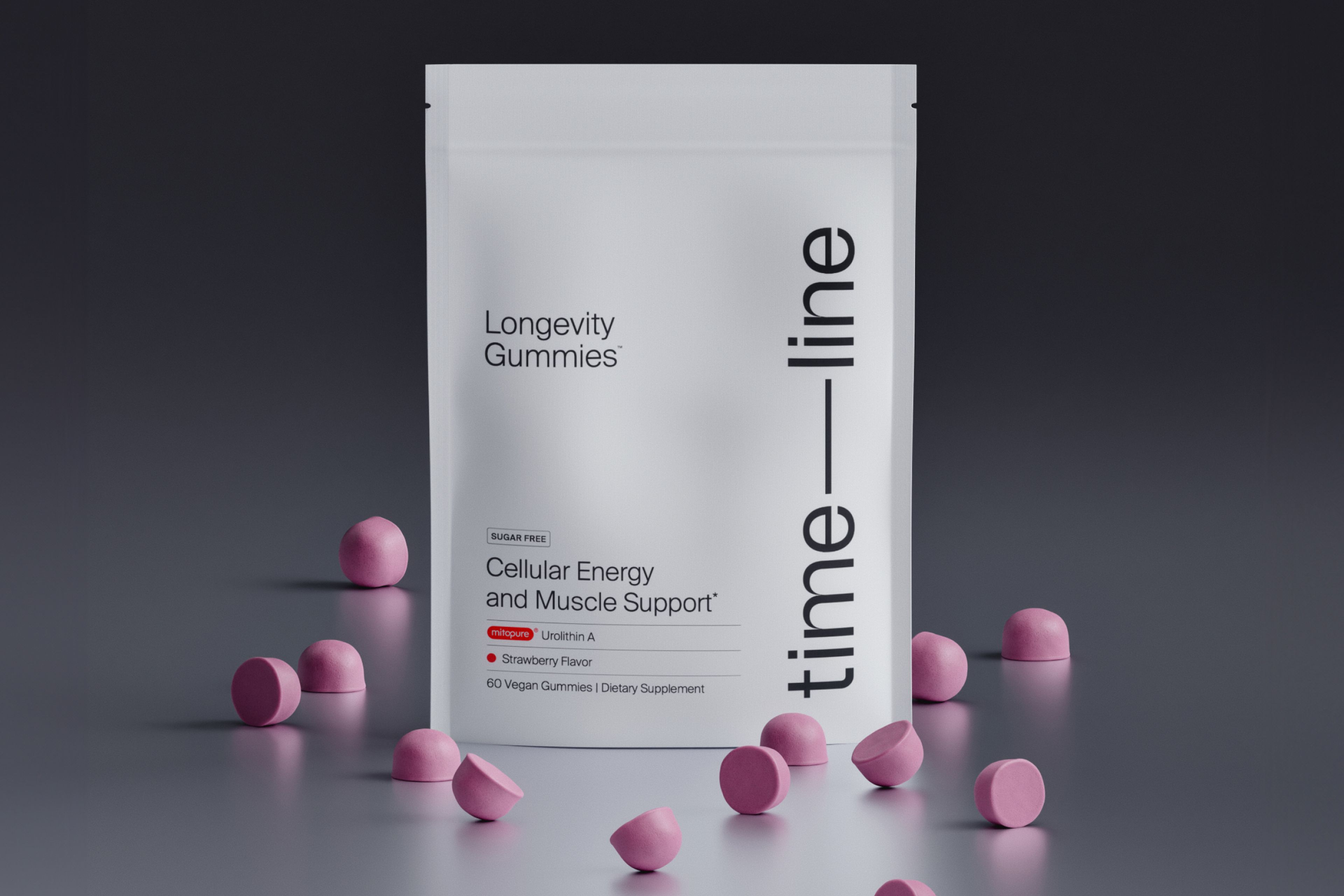Intermittent fasting for women over 50 - Is it recommended?
Is intermittent fasting for women over 50 recommended, given hormonal changes that occur during menopause? Find out in this article.

What to know
Intermittent fasting has many benefits for women over 50, including weight loss, chronic disease reduction, and enhanced longevity.
Potential risks of intermittent fasting include nausea, fatigue, headache, dizziness, nutrient deficiencies, and hormone fluctuations in prolonged fasting.
A time-restricted eating window is best for women over 50 for its flexibility, with an emphasis on eating more earlier in the day.
Intermittent fasting is a highly popular eating method for women over 50 who want to combat menopause weight gain and improve their health. But is it helpful? And is it safe?
Keep reading to learn the ins, outs, and nuances of intermittent fasting for women over 50 and other ways you can support health and vitality during this stage of life.
A word on intermittent fasting
Intermittent fasting is an eating pattern that alternates between periods of eating and fasting.
There are several research-backed benefits of intermittent fasting for women over 50 who may be at an increased health risk. Menopausal women are at a higher risk for weight gain, insulin resistance, and other health problems, such as high blood pressure, that increase the risk for chronic diseases.[1]
The most common intermittent fasting method is time-restricted fasting, in which you fast for a certain number of hours every day and then have an eating window for the rest of the hours. Fasting hours usually overlap with sleeping hours and can be in different rations like 12:12, 14:10, or 16:8.
Other types of fasting methods include 5:2, where you eat normally for 5 days and limit to 500 calories for 2 days. Another common method is alternate-day fasting, where a person fasts every other day and limits intake to 500 calories on those days.

Benefits of intermittent fasting
The benefits of intermittent fasting are well-studied in both men and women.
Here are some of the potential benefits of intermittent fasting for women:
- Weight loss and reduced belly fat[2]
- Reduced blood pressure
- Improved insulin sensitivity in those with prediabetes or type 2 diabetes[3]
- Lower cholesterol and triglyceride levels
- Decreased oxidative stress[4] that leads to early aging[5]
- Improved mitochondrial function - the cellular energy centers, in people with metabolic conditions like type 2 diabetes and obesity.[6]
In addition, research has shown cellular repair (autophagy), a necessary component of health and longevity, occurs in a fasted state.[7]
Health risks of intermittent fasting
While intermittent fasting has its benefits, there are also potential risks to consider. Intermittent fasting may have different effects depending on one's age, sex, and medical history.
Some of the risks and potential side effects include:[8]
- Nausea
- Dizziness
- Headache
- Fatigue
- Irritability and hunger
- Low blood sugar
Many of these side effects are more likely to occur during the first month of fasting as the body adjusts.
There are some other more serious concerns with fasting, including:[9]
- Nutrient deficiencies
- Hormone fluctuations
- Possible bone density loss

Intermittent fasting for women over 50
Is intermittent fasting for women over 50 safe? The answer is generally yes for most people.
However, not every woman responds to fasting in the same way, and there are a few important factors to consider when it comes to intermittent fasting for women 50 and above.
Hormone changes
Many menopausal women are concerned that fasting may negatively affect their hormone levels, which are already declining at this time. However, according to the research, intermittent fasting does not appear to alter most sex hormone levels, such as estrogen, progesterone, and testosterone.[10]
One sex hormone called DHEA was found to decrease with fasting in some studies. However, the amount it decreased was not considered significant, did not cause negative side effects,[11] and was still considered within the normal range for postmenopausal women.[12]
Thyroid function
A few human studies show intermittent fasting can decrease thyroid hormone levels. However, this is typically after at least 24-48 hours of fasting. Because of this, it is best to practice a less strict form of fasting in the form of time-restricted eating, so that you are not fasting for this long.[13]
If you are concerned about your thyroid health or already have an established thyroid condition, speak to your doctor before beginning a fasting regimen.
Bone health
Bone loss is a common concern during menopause, which often comes along with declining estrogen levels. Yet, most research shows intermittent fasting does not appear[14] to further increase bone loss.[15]
Instead, more severe calorie restriction or inactivity (especially a lack of resistance training) is more connected to bone loss in postmenopausal women.[16]
Incorporating enough bone-supporting nutrients like protein, calcium, and vitamin D can reduce the risk of any negative effects on bone mass.[17]
Cortisol levels and stress
Cortisol levels (the “stress hormone”) tend to increase during prolonged periods of fasting, and during menopause as well. This can exacerbate menopause symptoms like increased hunger and weight gain. However, this increase was really only seen in multi-day fasts, where you fast for multiple days consecutively.[18]
Autophagy and longevity
One of the biggest benefits of fasting is its ability to induce autophagy and promote longevity. Autophagy is a term for your body’s cell recycling process. When autophagy is in full force, your body removes old, damaged cells and replaces them with healthy, more functioning cells. The end result⸺healthier aging.[19]

The best intermittent fasting schedule for women over 50
A time-restricted eating schedule is most likely the best for women over 50 because it is the most flexible and poses the least risk. The exact timing of your schedule may vary depending on your routine, work schedule, preference, and lifestyle.
If weight loss is your goal, an earlier eating window and eating more calories in the first half of the day may result in greater weight loss. For example, choosing an eating window from 8:00 a.m. to 4:00 p.m. may be optimal compared to a 12:00 p.m. to 8:00 p.m. schedule.[20]
Overall, the best schedule is one that fits your lifestyle and is the most sustainable for you. Work with your health care provider to determine how to best fit intermittent fasting into your routine.
Special populations and considerations
There are a few populations where the risks of fasting may outweigh the benefits, such as those who are pregnant or breastfeeding, under the age of 12, and those with a BMI of less than 18.5.
In addition, those who have a history of an eating disorder should proceed with caution, as fasting can require you to ignore your hunger signals when it’s not the time to eat. While the research thus far shows intermittent fasting does not directly increase eating disorder behaviors, it is an important aspect to consider and discuss with your doctor.[2]
But, is intermittent fasting safe for diabetics? You need to consider when you take medications and if it’s timed with foods. Also some medications like insulin will lower your blood sugar so levels must be managed to prevent hypoglycemia. Discussing these details with your doctor is important to determine the best fasting schedule to match your medication schedule.
Final words
Intermittent fasting provides many benefits for women over 50, including weight loss and a reduction in chronic disease. However, this eating approach is not for everyone.
If fasting is not for you, there are plenty of other ways to support healthy aging as you approach menopause and beyond.
Focus on getting enough physical activity, a nutritious diet, and quality supplements that support healthy aging like Mitopure.
Authors

Dietitian-Nutritionist, and Health Content Writer

Reviewed by
Senior Manager of Nutrition Affairs
References
- ↑
Rostami-Moez M, Masoumi SZ, Otogara M, Farahani F, Alimohammadi S, Oshvandi K. Examining the Health-Related Needs of Females during Menopause: A Systematic Review Study. J Menopausal Med. 2023;29(1):1-20. doi:10.6118/jmm.22033
- ↑
Liu S, D'Amico D, Shankland E, Bhayana S, Garcia JM, Aebischer P, Rinsch C, Singh A, Marcinek DJ. Effect of Urolithin A Supplementation on Muscle Endurance and Mitochondrial Health in Older Adults: A Randomized Clinical Trial. JAMA Netw Open. 2022 Jan 4;5(1):e2144279. doi: 10.1001/jamanetworkopen.2021.44279. PMID: 35050355; PMCID: PMC8777576.
- ↑
Yuan X, Wang J, Yang S, Gao M, Cao L, Li X, Hong D, Tian S, Sun C. Effect of Intermittent Fasting Diet on Glucose and Lipid Metabolism and Insulin Resistance in Patients with Impaired Glucose and Lipid Metabolism: A Systematic Review and Meta-Analysis. Int J Endocrinol. 2022 Mar 24;2022:6999907. doi: 10.1155/2022/6999907. PMID: 35371260; PMCID: PMC8970877.
- ↑
James DL, Hawley NA, Mohr AE, et al. Impact of Intermittent Fasting and/or Caloric Restriction on Aging-Related Outcomes in Adults: A Scoping Review of Randomized Controlled Trials. Nutrients. 2024;16(2):316. Published 2024 Jan 20. doi:10.3390/nu16020316
- ↑
AlZunaidy NA, Al-Khalifa AS, Alhussain MH, Mohammed MA, Alfheeaid HA, Althwab SA, Faris ME. The Effect of Ramadan Intermittent Fasting on Food Intake, Anthropometric Indices, and Metabolic Markers among Premenopausal and Postmenopausal Women: A Cross-Sectional Study. Medicina (Kaunas). 2023 Jun 24;59(7):1191. doi: 10.3390/medicina59071191. PMID: 37512003; PMCID: PMC10385901.
- ↑
Joaquim L, Faria A, Loureiro H, Matafome P. Benefits, mechanisms, and risks of intermittent fasting in metabolic syndrome and type 2 diabetes. J Physiol Biochem. 2022 May;78(2):295-305. doi: 10.1007/s13105-021-00839-4. Epub 2022 Jan 5. PMID: 34985730.
- ↑
Longo VD, Mattson MP. Fasting: molecular mechanisms and clinical applications. Cell Metab. 2014;19(2):181-192. doi:10.1016/j.cmet.2013.12.008
- ↑
Shalabi H, Hassan AS 4th, Al-Zahrani FA, et al. Intermittent Fasting: Benefits, Side Effects, Quality of Life, and Knowledge of the Saudi Population. Cureus. 2023;15(2):e34722. Published 2023 Feb 7. doi:10.7759/cureus.34722
- ↑
Clayton DJ, Varley I, Papageorgiou M. Intermittent fasting and bone health: a bone of contention? Br J Nutr. 2023 Nov 14;130(9):1487-1499. doi: 10.1017/S0007114523000545. Epub 2023 Mar 6. PMID: 36876592; PMCID: PMC10551474.
- ↑
Kalam F, Akasheh RT, Cienfuegos S, et al. Effect of time-restricted eating on sex hormone levels in premenopausal and postmenopausal females. Obesity (Silver Spring). 2023;31 Suppl 1(Suppl 1):57-62. doi:10.1002/oby.23562
- ↑
Cienfuegos S, Corapi S, Gabel K, et al. Effect of Intermittent Fasting on Reproductive Hormone Levels in Females and Males: A Review of Human Trials. Nutrients. 2022;14(11):2343. Published 2022 Jun 3. doi:10.3390/nu14112343
- ↑
Kalam F, Akasheh RT, Cienfuegos S, Ankireddy A, Gabel K, Ezpeleta M, Lin S, Tamatam CM, Reddy SP, Spring B, Khan SA, Varady KA. Effect of time-restricted eating on sex hormone levels in premenopausal and postmenopausal females. Obesity (Silver Spring). 2023 Feb;31 Suppl 1(Suppl 1):57-62. doi: 10.1002/oby.23562. Epub 2022 Oct 6. PMID: 36203273; PMCID: PMC9877115.
- ↑
Kim BH, Joo Y, Kim MS, Choe HK, Tong Q, Kwon O. Effects of Intermittent Fasting on the Circulating Levels and Circadian Rhythms of Hormones. Endocrinol Metab (Seoul). 2021;36(4):745-756. doi:10.3803/EnM.2021.405
- ↑
Lo JC, Burnett-Bowie SA, Finkelstein JS. Bone and the perimenopause. Obstet Gynecol Clin North Am. 2011;38(3):503-517. doi:10.1016/j.ogc.2011.07.001
- ↑
Clayton DJ, Varley I, Papageorgiou M. Intermittent fasting and bone health: a bone of contention? Br J Nutr. 2023 Nov 14;130(9):1487-1499. doi: 10.1017/S0007114523000545. Epub 2023 Mar 6. PMID: 36876592; PMCID: PMC10551474.
- ↑
Liu L, Rosen CJ. New Insights into Calorie Restriction Induced Bone Loss. Endocrinol Metab (Seoul). 2023;38(2):203-213. doi:10.3803/EnM.2023.1673
- ↑
Price CT, Langford JR, Liporace FA. Essential Nutrients for Bone Health and a Review of their Availability in the Average North American Diet. Open Orthop J. 2012;6:143-149. doi:10.2174/1874325001206010143
- ↑
Kim BH, Joo Y, Kim MS, Choe HK, Tong Q, Kwon O. Effects of Intermittent Fasting on the Circulating Levels and Circadian Rhythms of Hormones. Endocrinol Metab (Seoul). 2021;36(4):745-756. doi:10.3803/EnM.2021.405
- ↑
Aman, Y., Schmauck-Medina, T., Hansen, M. et al. Autophagy in healthy aging and disease. Nat Aging 1, 634–650 (2021). https://doi.org/10.1038/s43587-021-00098-4
- ↑
Jamshed H, Steger FL, Bryan DR, et al. Effectiveness of Early Time-Restricted Eating for Weight Loss, Fat Loss, and Cardiometabolic Health in Adults With Obesity: A Randomized Clinical Trial. JAMA Intern Med. 2022;182(9):953-962. doi:10.1001/jamainternmed.2022.3050
Disclaimer
The information in this article is for informational purposes only and should not be taken as medical advice. Always consult with your medical doctor for personalized medical advice.

•
Nutrition•
First-of-Its-Kind Longevity Gummy Launched

•
Skincare•






